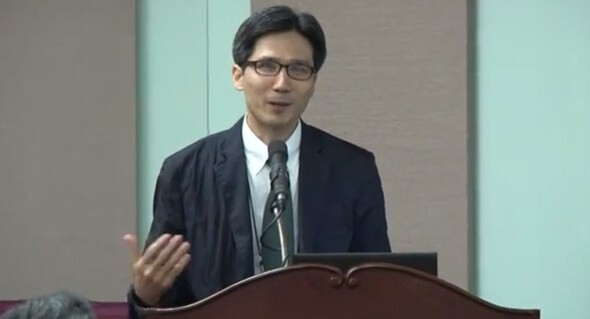hankyoreh
Links to other country sites 다른 나라 사이트 링크
In unified Korea, per capita income would fall by 15-30%

A report has been released suggesting that reunification of the Korean Peninsula would have considerable economic ramifications. For 10 years after economic integration, the report predicts, the national per capita income would fall by 15% to 30%.
During an international academic conference of the Korean Economic Association that was held at Sogang University in Seoul on Aug. 8, a team of researchers led by Moon Weh-Sol, an economics professor at Seoul Women’s University, published a paper titled “The Effect of Unification on the Macro Economy.”
In the paper, Moon and the other researchers analyzed changes in per capita productivity in three hypothetical scenarios of economic integration - opening up the capital market, opening up the labor market, and simultaneously opening up both the capital and labor markets. According to the researchers’ analysis, it would take a little over 30 years for the per capita productivity of unified Korea to reach 90% of the per capita productivity of South Korea.
The researchers predicted that opening up the capital market and restricting the labor market would be the most stable economic integration plan. The relatively abundant capital in South Korea could be invested in infrastructure development projects in North Korea that could employ relatively cheap North Korean labor. This would have the effect of raising productivity in North Korea.
Opening up the capital market and the labor market at the same time would have the advantage of increasing South Korea’s per capita productivity in the shortest period of time, the researchers predicted. But there is a high likelihood of North Korean workers moving to South Korea because of higher wages here, which would intensify unbalanced development, the researchers found.
In the end, it would take 50 years for the per capita productivity in North Korea to reach just half that of South Korea, the report concluded.
In the scenario of opening up the labor market and restricting the capital market, the report predicted that there would be hardly any changes in interest rates or wage levels in South Korea, while North Korea would suffer a capital shortage. But the report concluded that this scenario was very implausible.
“The choice of whether or not to open up the labor market has contradictory effects on per capita productivity and on balanced regional development. In order to prevent the disparity between the two regions [North and South Korea] that would result from economic integration, it is recommended to take a ’one country, two systems’ approach that involves opening up the capital market and restricting the labor market,” the researchers proposed.
By Noh Hyun-woong, staff reporter
Please direct questions or comments to [english@hani.co.kr]

Editorial・opinion
![[Column] Park Geun-hye déjà vu in Yoon Suk-yeol [Column] Park Geun-hye déjà vu in Yoon Suk-yeol](https://flexible.img.hani.co.kr/flexible/normal/500/300/imgdb/original/2024/0424/651713945113788.jpg) [Column] Park Geun-hye déjà vu in Yoon Suk-yeol
[Column] Park Geun-hye déjà vu in Yoon Suk-yeol![[Editorial] New weight of N. Korea’s nuclear threats makes dialogue all the more urgent [Editorial] New weight of N. Korea’s nuclear threats makes dialogue all the more urgent](https://flexible.img.hani.co.kr/flexible/normal/500/300/imgdb/original/2024/0424/7317139454662664.jpg) [Editorial] New weight of N. Korea’s nuclear threats makes dialogue all the more urgent
[Editorial] New weight of N. Korea’s nuclear threats makes dialogue all the more urgent- [Guest essay] The real reason Korea’s new right wants to dub Rhee a founding father
- [Column] ‘Choson’: Is it time we start referring to N. Korea in its own terms?
- [Editorial] Japan’s rewriting of history with Korea has gone too far
- [Column] The president’s questionable capacity for dialogue
- [Column] Are chaebol firms just pizza pies for families to divvy up as they please?
- [Column] Has Korea, too, crossed the Rubicon on China?
- [Correspondent’s column] In Japan’s alliance with US, echoes of its past alliances with UK
- [Editorial] Does Yoon think the Korean public is wrong?
Most viewed articles
- 1‘We must say no’: Seoul defense chief on Korean, USFK involvement in hypothetical Taiwan crisis
- 2N. Korean delegation’s trip to Iran shows how Pyongyang is leveraging ties with Moscow
- 346% of cases of violence against women in Korea perpetrated by intimate partner, study finds
- 4Amnesty notes ‘erosion’ of freedom of expression in Korea in annual human rights report
- 5‘Weddingflation’ breaks the bank for Korean couples-to-be
- 6[Column] Park Geun-hye déjà vu in Yoon Suk-yeol
- 7Will NewJeans end up collateral damage in internal feud at K-pop juggernaut Hybe?
- 8Korea sees more deaths than births for 52nd consecutive month in February
- 9“Parental care contracts” increasingly common in South Korea
- 10[Interview] Dear Korean men, It’s OK to admit you’re not always strong